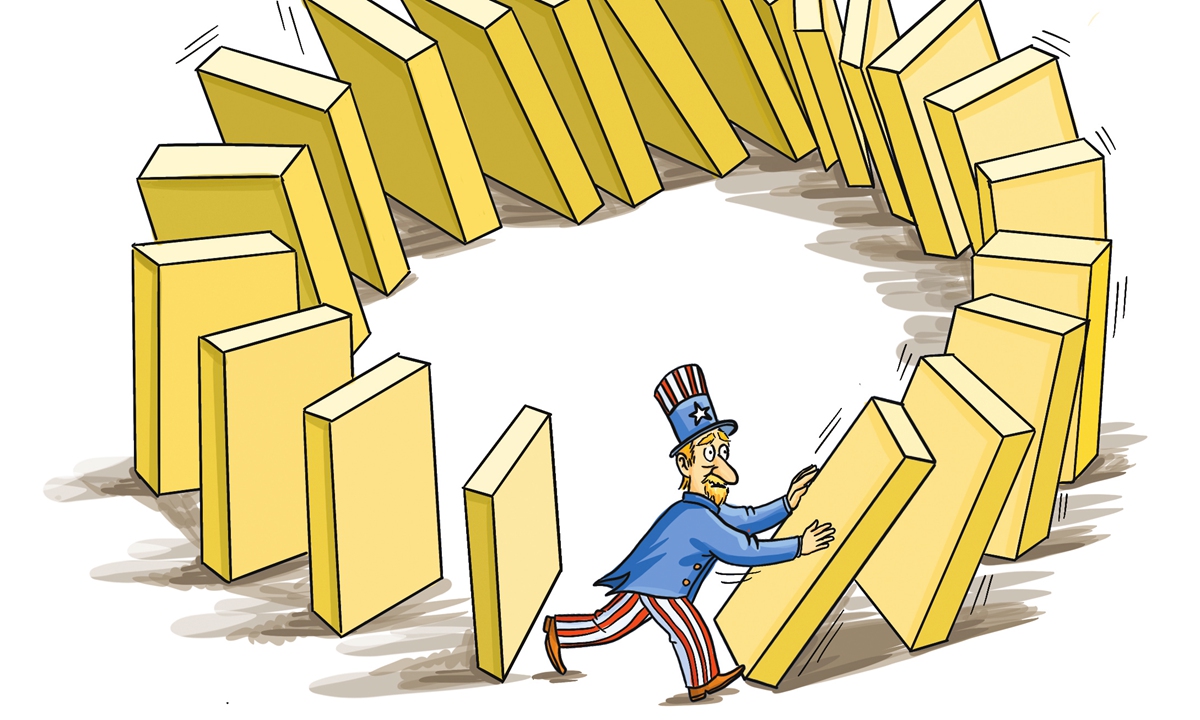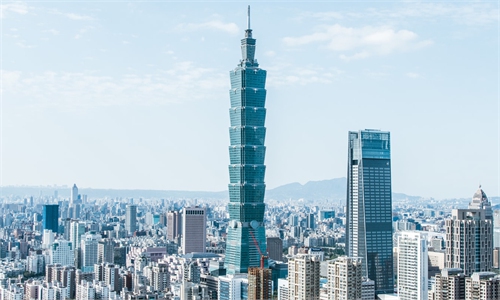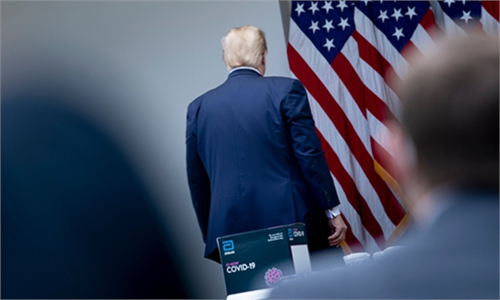COMMENTS / EXPERT ASSESSMENT
Peaceful transition by Trump important for US economy

Illustration: Xia Qing/GT
With little over two months left in the White House, US President Donald Trump - who stands little chance of turning the tide and has seemingly no intention of submitting to a peaceful transfer of power - is reportedly planning to continue with his tough anti-China policies.Citing senior administration officials, American news site Axios reported that Trump plans to roll out a series of policies confronting China, and making it hard for the incoming Biden administration to change course.
Clinging on to his approach of assaulting China was perhaps not an unexpected scenario, since the Trump-led US administration has long been working on measures that target China and Chinese firms. In addition, it's likely he is launching such diplomatic policies in a bid to demonstrate that he is still in charge as he refuses to concede defeat.
The Axios report noted that more Chinese firms, government entities and officials may be placed on the US' black lists, among other potential moves. Meanwhile it stressed that no big moves regarding the island of Taiwan are expected.
Though currently there is still room for Trump to launch diplomatic moves within purview, the effects and persistence of any further policies confronting China remain to be seen.
Alongside his fading hopes for a second term, Trump recently signed a ban on US investment in 31 different Chinese companies due to their so-called "military links," which may also lead to fading opportunities for US firms: Chinese capital markets are much in demand recently, drawing international capital inflows especially amid the deadly COVID-19 pandemic.
As of September, foreign institutions had increased their holdings of Chinese bonds for 22 consecutive months.
Just like the years-long trade war with China, Trump did not win, and the US economy did not avoid damage. While maintaining his claims of being able to bring manufacturing jobs back to the US from China, the US' trade war caused a net loss of 175,000 US manufacturing jobs by the middle of 2019, according to Reuters who cited analysis by economic experts.
Instead of making China compromise and enhancing the US' dominance, Trump has hurt both of the world's two largest economies. By undermining economic rules, US companies haven't been able to allocate resources according to the market principle of profit maximization, and American residents now simply pay more for the same products.
It is true that the trade war has also hindered the development of the Chinese economy and Chinese firms. However, in a lose-lose war, China's economy has shown great resilience. Despite the heavy blow issued by COVID-19, China is still expected to be the only major economy realizing growth this year.
As for the swath of Chinese firms suffering regular blows from the Trump administration, not only did they survive the crackdown from the US and its allies, but many of them have thrived, posting higher profits and releasing ever more innovative products - from 5G frontrunner Huawei to social media platform TikTok.
More importantly, the essential mistake of Trump's anti-China campaign has been forcing the Chinese economy and its firms to realize the importance of standing on their own, especially when it comes to core technologies and industrial chains. All the US has done is foster a stronger competitor.
The newly signed Regional Comprehensive Economic Partnership (RCEP) by China and 14 other economies, covering 30 percent of the global population and economy, is yet another reason for the world's largest economy to reflect on its strategy after recklessly promoting unilateralism for years.
On Monday, Chinese Foreign Ministry spokesperson Zhao Lijian urged the US to manage the two country's differences on the basis of mutual respect, and to explore cooperation and reciprocity, while China will firmly defend its own interests of sovereignty, security and development.
As the inauguration ceremony of the US president in January draws near and the possibility of Trump being able to reverse the election fades away, it would serve the US' essential interests if Trump were to begin a peaceful transfer of power to the President-Elect, rather than triggering new disputes on the global stage.
The article was compiled based on an interview with Song Guoyou, deputy director of the Center for American Studies at Fudan University. bizopinion@globaltimes.com.cn



